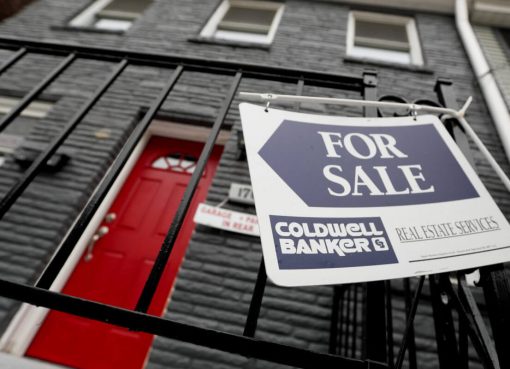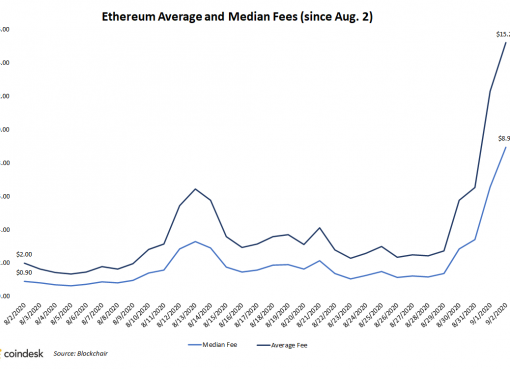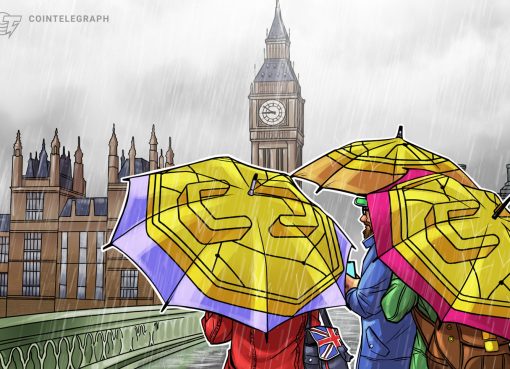Bitcoin is the leader of the pack in the crypto space. It has recovered from the disastrous crash of 2018 and is heading back towards the price it reached in December 2017. So what does the future hold for bitcoin? Could it eventually replace the dollar as the global reserve currency, as its loyal supporters claim? Will it eventually crash and die, as Nouriel Roubini has predicted? Or is it destined to remain a speculative asset, spicing up investment portfolios but never being adopted as a main medium of exchange?
More than a decade after its emergence from the ashes of the financial crisis, bitcoin is still a minority sport. Predictions that it will reach $1 million or more seem wildly over-optimistic. Nor is it showing any signs of becoming a main medium of exchange. Over the last 10 years, the U.S. dollar has entrenched itself ever more firmly as the world’s premier settlement currency. Bitcoin is no nearer universal acceptance than it was when it started.
Frances Coppola, a CryptoX columnist, is a freelance writer and speaker on banking, finance and economics. Her book “The Case for People’s Quantitative Easing,” explains how modern money creation and quantitative easing work, and advocates “helicopter money” to help economies out of recession.
But bitcoin has survived two major crashes and numerous smaller ones, and is now on the way up again. Unlike many smaller cryptocurrencies, its value has never fallen to zero – indeed, over the 12 years of its existence, its value has risen considerably. Volatile though it is, it has demonstrated that it can hold value over the longer term. It has achieved a degree of maturity as a store of value, though not as a medium of exchange.
It’s tempting to predict Bitcoin’s future based on its performance so far. Speculative high-yield asset, yes. Long-term store of value, maybe. Medium of exchange, not so much. But as any investor knows, past performance is not a guide to future returns. So let’s examine whether despite its apparent resilience, bitcoin’s value could still fall to zero, and conversely, what it might take for bitcoin to replace the dollar as the global reserve currency.
To understand how either of these scenarios could happen, it’s instructive to look at how fiat currencies work. What gives fiat currencies value – and how do they lose it?
There are two competing theories for what gives fiat currencies value: what we might call a “metallist” theory, that the value of a fiat currency is conferred by the gold to which it used to be pegged, and the “chartalist” theory, which says that a fiat currency has value because people have to pay taxes in it. Of course, neither applies to bitcoin: it has never been pegged to gold, and no government accepts taxes in it. So are there other ways in which a currency can acquire and hold value over the long term?
See also: Frances Coppola – Banks Are Toast but Crypto Has Lost Its Soul
Underpinning both the metallist and the chartalist view of fiat currency value is a deeper fundamental: the belief that what backs the currency is itself trustworthy. In the case of metallists, it is the belief that gold will always be valuable. This belief has been tested over millennia and never failed, so it is probably reasonable. Less reasonable is the notion that a currency currently not pegged to gold is valuable because it used to be pegged. However, many metallists believe fiat currencies will eventually be re-pegged to gold (more on this shortly).
For chartalists, the underlying belief is the government is capable both of imposing tax liabilities and collecting them. Ability to tax doesn’t have to mean authoritarianism: Reasonable taxation by a government perceived as fair and benign is actually more likely to result in a stable currency than punitive and unfair taxes harshly enforced.
What gives currency value, therefore, is trust in whatever is backing it. So what is backing bitcoin? Responding to the criticism that “bitcoin isn’t backed by anything,” the investment website Fidelity Digital Assets said, “Bitcoin is backed by code and the consensus that exists among its key stakeholders.”
The sort of social and political collapse that would destroy the dollar would surely also destroy global civilization.
This is a statement of faith. It amounts to “the code is perfect, and the key stakeholders would never do anything to make it less than perfect.” Neither is necessarily true, but all is necessary for bitcoin to hold value is for a sufficient number of people to believe it.
The code isn’t perfect, of course. If it were, it would never have been hard forked. But Fidelity Digital Assets has an answer to that one too. Bitcoin may not be immutable, but its community is: “While Bitcoin’s open-source software may be forked, its community and network effects cannot.”
Many people have commented on Bitcoin’s cult-like nature, which appears to be a design feature – the pseudonymous leader who disappeared after three years, the refusal of those who know who Satoshi is to reveal his/her identity, the reverence with which followers treat the sayings of Satoshi and his/her close associates. Network effects are particularly strong in cults, and the incentives of cult members are not necessarily financial. True believers remain invested in bitcoin and actively trading even when the price is falling catastrophically, because of their faith bitcoin will eventually become the heart of a new world order. While they exist, there will always be an incentive to mine bitcoin – and while that remains the case, the price cannot fall to zero.
See also: Jill Carlson – Cryptocurrency Is Most Useful for Breaking Laws and Social Constructs
So the faith of bitcoiners is what gives bitcoin its value. If they were to lose that faith, the currency’s value would fall to zero. But is their faith alone enough for bitcoin eventually to replace the U.S. dollar as global reserve currency?
There are at present no indications whatsoever that the world is likely to ditch the dollar anytime soon. If anything, the present pandemic has increased reliance on the dollar, forcing the Federal Reserve to provide more liquidity to financial markets. Even in crypto markets, there is a growing need for greenbacks – after all, what are stablecoins but a means of tying cryptocurrencies ever more tightly to the dollar?
A global switch to bitcoin would cause the mother of all financial crises, destabilizing not only conventional markets but crypto markets, too. However, a significant number of people, including but not limited to bitcoiners, think this is not only possible but inevitable. They believe that quantitative easing (QE) will eventually trigger uncontrollable hyperinflation of all major fiat currencies. This belief has proved persistent despite the failure of QE to generate significant price inflation anywhere in the world.
In the early 2010s, people who believed in this hyper-inflationary Armageddon thought the inevitable result would be the return of the global gold standard. Some of them still believe this. But bitcoin’s true believers argue it is bitcoin, not gold, to which the world would turn when fiat currencies crashed and burned.
Why bitcoin? Because it has both the advantages of gold and the convenience of digital currency. It is not issued or controlled by a government, and – unlike gold – its supply increases predictably and will eventually be permanently fixed. It can be subdivided into tiny amounts, making it more usable than gold as a medium of exchange. And as its value increases, the prices of real goods and services bought with it will fall. A digital currency independent of government and naturally deflationary would be just what would be needed to restore trust in money after the dollar’s hyper-inflationary collapse.
But hyper-inflation is very much associated with social, political and economic collapse. So those who believe bitcoin is destined to replace the dollar as the premier international reserve and settlement currency, and investing in it for that reason, are essentially betting on the collapse of the U.S. and the unravelling of the current international order.
Sudden disastrous hegemonic collapses are the stuff of apocalyptic fiction, not reality. It took over half a century and two world wars for hegemony to transfer from Great Britain to the U.S., and even then the transfer was slow and not particularly disorderly. The sort of social and political collapse that would destroy the dollar would surely also destroy global civilization.
See also: Frances Coppola – Why Bitcoin-Like Scarcity Would Be a Disaster for the Dollar
Would people even have the devices, broadband and electricity needed to use and mine bitcoin after such a catastrophe? The apocalyptic fiction of the Cold War era, when nuclear war was a real threat, unanimously says “No.” Not only would the devices and the electricity fail to survive, but in their own struggle to survive people would quickly forget they ever existed. You can’t eat bitcoin.
It’s possible the world might avert a deflationary collapse by agreeing to make bitcoin the underpinning of a global system of digital fiat currencies, much as gold underpinned the “Bretton Woods” system of the post-World War II period. But the Bretton Woods system barely lasted 20 years before global economic imbalances and conflicts fatally destabilized it. Why would “Bitcoin Woods” last any longer?
When faith rules the roost, people believe all sorts of incredible things. Bitcoin replacing the dollar as the global reserve currency is such an incredible thing. The chances of it happening seem very small. But as long as bitcoin’s supporters continue to believe that it is destined to rule the world, bitcoin will have value; others can benefit from that value even if they don’t share the belief. Thanks to the faith of bitcoin’s true believers, bitcoin will continue to be a good bet for investors.




